Fellow round the world cyclists Sonja and Ali of Tour.tk share their love of bicycle touring in the Land of the Rising Sun.
What? Only five reasons to go cycling in Japan? We could give you at least 50, so we might have to cheat a bit here…
Reason #01: wild camping with no rules
Japan offers some of the most challenging and enjoyable cycle touring our world has on offer. But the best thing about it is, you can pedal around knowing that at the end of the day, you can literally camp anywhere: by the rivers, in parks, near temples, along canals in city centres. And we did just that. Staying 6 nights with friends in Tokyo, the remainder 32 days were spent camping. For only 7 of these days did we pitch the tent in an official area.
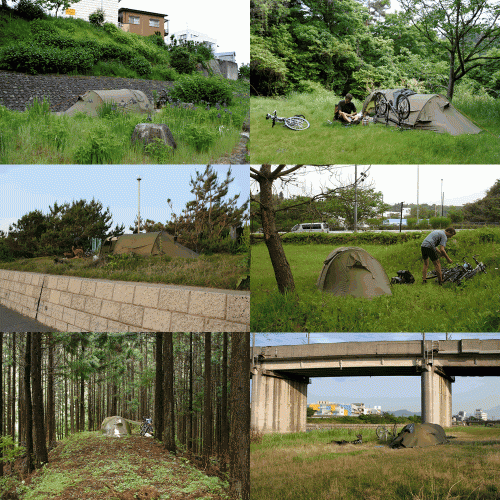
Reason #02: glorious shopping for food, glorious food
The supermarkets in Japan are something else. Firstly, they are usually massive and without a doubt, you’ll get lost trying to find what you want. And that’s not hard, when they dedicate whole aisles just to seaweed and miso-soup pastes.
Secondly, the food produce is very good, very fresh and most things are reasonably cheap. Mushrooms that you would have to earn a full day’s wages for in Europe, cost absolutely nothing, as does the tofu of every delicious description and variety. Bean sprouts and green leafy products are in abundance. And if you don’t fall in love with the fresh udon noodle, then there is another noodle variety to tempt you for every day of the month.
For those on a budget: you just have to go into the store in the late afternoon and pick up all the cut-price specials. The Japanese are fastidious about a products shelf life. So anything even in a whiff of its use-by date is discounted heavily, making creative self catering in Japan amazingly inexpensive.
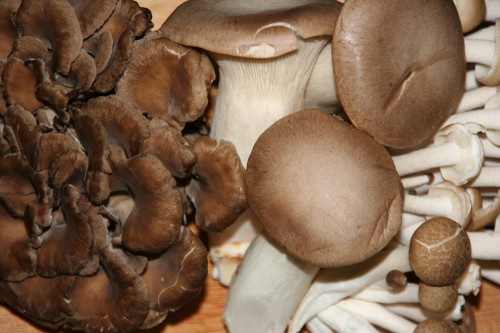
Reason #03 rural quietness and never ending rice fields
As soon as you have pedalled well away from the concrete jungles, the scenery is transformed Think of the ambience in France with its vineyards and lavender replaced by rice paddies and azaleas. Blankets of green cover volcanic mountains, manicured curves of the tea plantations sculpt perfect waves in the landscape, rivers surge, farmers plant rice by hand, birds warble in orchestrated tones and butterflies stun you with their colour and size. Magnificently intense.
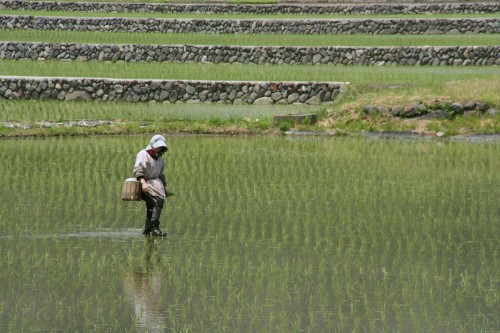
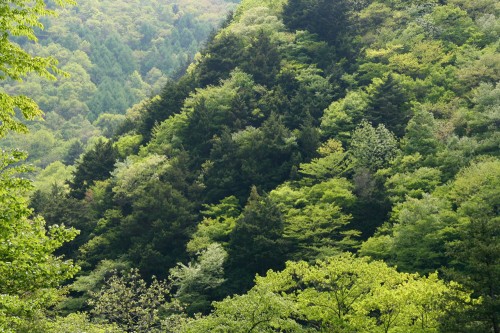
Reason #04: Hotaru
Japan has many sights of interest; just pick up any guide book and it will tell you so. However, what most of them fail to mention is the hotaru: the firefly. About 50 of the worlds known 2000 species live in Japan and they are commonly referenced in poetry, children’s ditties and Japanese proverbs. They even have a festival dedicated especially to them
But the part we loved the most was the way they would dart in and around our tent. They only live by clean streams and since we did most of our wild camping near rivers we were entertained every evening by these attractive little creatures. On one occasion, we had a fairy-light performance for as far as we can see. So spellbinding in fact, that after we had finished with our initial oohing and aahing, Ali began to sing Jingle Bells. It was bigger and better than any Christmas tree we had ever seen.
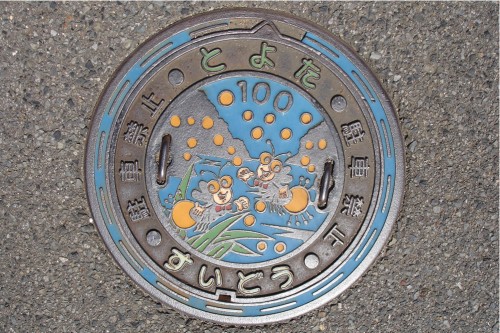
Reason #05: Japan is just special
Besides experiencing the traditional tea ceremony, sento bath, love motel, bonzai garden, Buddhist temple, the Hiroshima Peace Memorial, a climb up mount Fuji or just eating sushi, the Japanese culture is one of the most special we have ever experienced.
Some unique things you might also find yourself doing during a cycling vacation are:
- licking your lips at the perfect plastic food on display in restaurant windows
- talking back to a vending machine that not only speaks to you, but could dispense anything from hot and cold coffee through to a lacy g-string
- locking your umbrella to a rack outside a building
- sitting on heated toilet seats with a remote control you don’t dare touch
- marvelling at the size of the biggest rice crackers on this planet
- not being able to choose from all the electrical gadgets on sale
- admiring the artistic manhole covers
- getting bowed to constantly; and
- drinking Pocari Sweat: one of those great thirst quenchers perfect after cycling the usual mountainous terrain that Japan dishes up in plenitude.
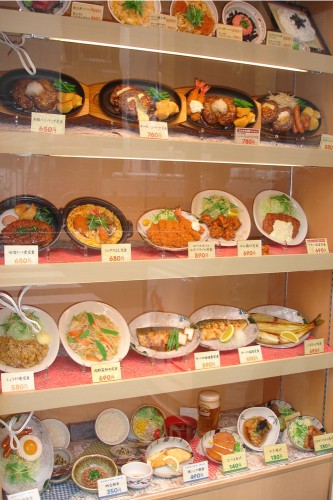
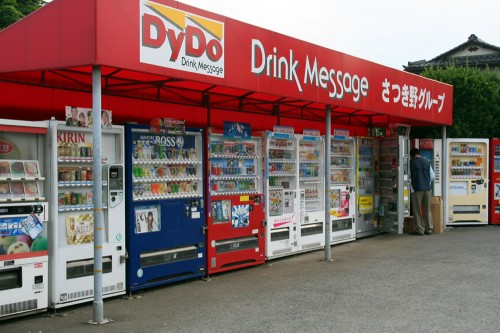
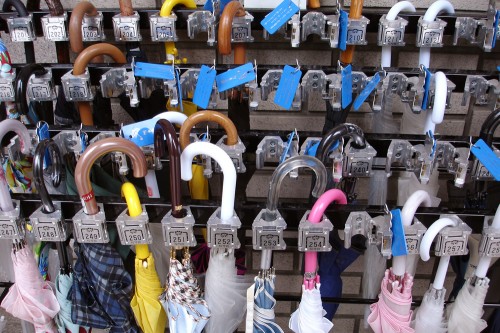
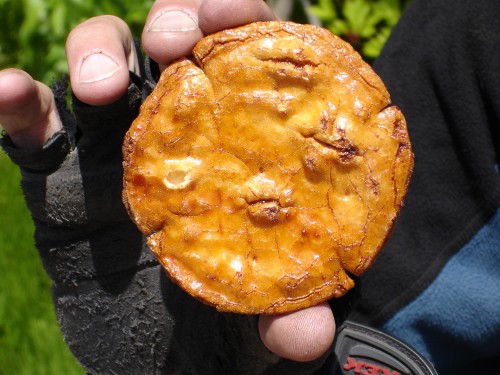
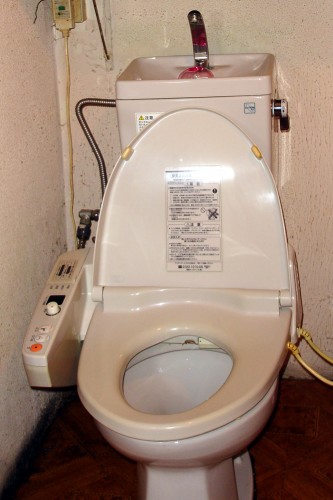
In the last five years Sonya Spry and Aaldrik Mulder have cycled through 47 countries; crossed 63 borders; rode 57,915 km; climbed 458 kilometer; camped on 691 days; had 129 flat tyres; broke 53 spokes; fractured 3 bones; had 2 collisions with cars; experienced 4 national elections; sat through 1 revolution and made a hell of a lot of new friends.
Ali and Sonya are currently taking a sabbatical from their round the world bicycle tour, but will be back on the road soon. You can read about their adventures and find resources to plan your own bicycle tour at www.tour.tk


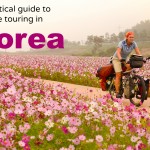

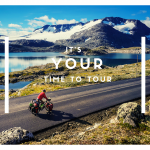
Your comments about Japan are so true and of course there are many more good things about cycling in Japan. Cycling along narrow roads or through tunnels with trucks whooshing past very close can be challenging but wherever possible Japanese drivers will try to accommodate you and your bicycle or if there is no oncoming traffic will give you a wide berth. The landscapes are wonderful virtually anywhere outside large cities and the people you meet along the way are invariably kind, generous and make you feel special. The free public onsens in Hokkaido (and anywhere) are not to be missed.
This is a great list. We moved to Japan about 18 months ago, and we’re about to get back into the swing of expedition touring here. One thing that’s on our minds at the moment is bear safety. We live in Tohoku, and there are some beautiful national parks nearby – complete with their own Asian black bears. Being from the UK, bear safety is something we’ve never really considered before. Do you have any comments on how you dealt with food, cooking etc in Japan? Thanks again for this post, it’s really inspiring.
I’m looking forward to touring in Japan in the next year or two.
@David — I don’t have experience with Asian black bears. I do live in Southeast Alaska and have tons of experience camping in brown (grizzly) and American black bears. Practice here for bear safety is NO food or toiletries or anything else “smelly” in your tent. Don’t eat in your tent or wear clothes that have food odors (e.g., spilled something or were fishing and got fish on) into your tent. If I’m by myself and/or in a really beary area I sometimes eat my dinner and then travel a bit before I camp. That means less food odor around camp. Don’t pitch your tent on a bear trail. I don’t know the deal with stashing food and toiletries in Japan. In Southeast Alaska (temperate rainforest) we either hang food in a tree away from the trunk and high enough a bear can’t reach from the ground or, my preferred method, store things in bear proof containers. Whether you do that or just secure your stuff on the ground for the night, keep about 100 meters from your tent and in a spot that you can see before approaching so you don’t surprise a bear at your food. Again, all of this is for bears in Alaska. Unless I learn otherwise, I’ll plan to follow these same principles in bear country in Japan (except – because my tent and sleeping bag/pad will end up in brown bear country, I don’t ever eat in it).